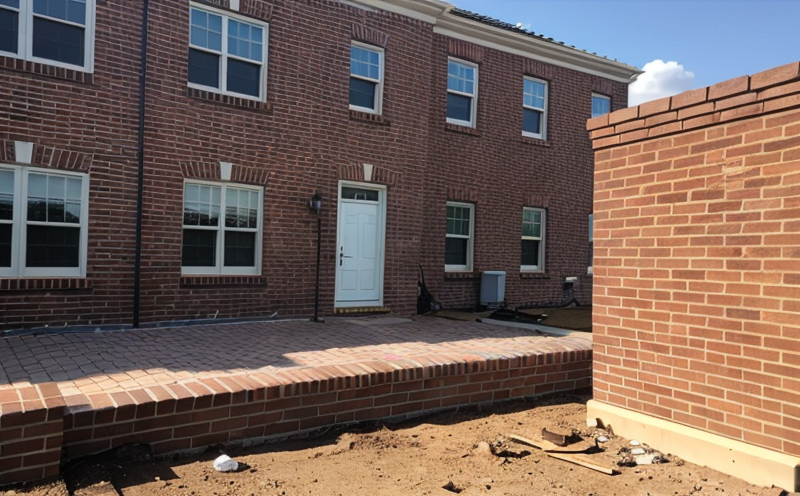ASTM C67 Moisture Content Determination
The ASTM C67 standard is a cornerstone in masonry and brick testing. This method provides clear guidelines on determining the moisture content of masonry units, such as bricks, blocks, and other related materials. Understanding moisture content is crucial for quality control, especially in construction projects where durability, longevity, and performance are paramount.
Moisture content can significantly impact the structural integrity and thermal properties of masonry structures. High moisture levels can lead to frost damage, mold growth, and accelerated deterioration. Conversely, low moisture levels may result in poor adhesion between materials or compromised strength. ASTM C67 ensures that these variables are accurately measured and reported.
The test method involves drying a representative sample of the material until it reaches a constant weight. The difference between the wet and dry weights is used to calculate the percentage of moisture content. This process requires precise instrumentation and adherence to strict procedures to ensure accurate results.
ASTM C67 is widely recognized in the construction industry, particularly for its applicability across various types of masonry units. It helps quality managers, compliance officers, R&D engineers, and procurement professionals make informed decisions about material selection and product performance. By adhering to this standard, stakeholders can ensure that their materials meet the necessary criteria for durability and safety.
The ASTM C67 method is essential in ensuring that masonry units are properly dried before use. This process helps prevent issues such as efflorescence, which can stain surfaces and compromise aesthetic appeal. Additionally, accurate moisture content determination ensures that materials are not only functional but also meet environmental standards for sustainable construction.
Understanding the ASTM C67 method is crucial for anyone involved in masonry testing and quality assurance. The standard provides a reliable framework for determining moisture content, which can significantly impact the performance of masonry structures. By following this protocol, professionals can ensure that their materials are suitable for use in various construction projects.
Applied Standards
The ASTM C67 standard is part of a broader suite of standards aimed at ensuring quality and safety in the construction industry. It aligns with international norms such as ISO 13958, EN 13402, and AS/NZS 2041, all of which focus on various aspects of material testing.
ASTM C67 is specifically designed for determining moisture content in masonry units. It provides a standardized approach to ensure that the results are consistent across different laboratories and regions. This standardization is critical for maintaining quality control throughout the construction process.
The ASTM C67 method is widely accepted in various sectors, including residential construction, commercial buildings, and infrastructure projects. By adhering to this standard, professionals can ensure that their materials meet the necessary criteria for durability and safety.
Industry Applications
| Application | Description |
|---|---|
| Determining moisture content in bricks and blocks | This is essential to ensure proper drying before use, preventing issues like efflorescence. |
| Evaluating masonry quality for durability | Moisture content affects the longevity of structures. ASTM C67 helps maintain standards. |
| Ensuring compliance with building codes | This standard is often referenced in regulatory requirements, ensuring projects meet safety and performance expectations. |
| Supporting sustainable construction practices | By preventing excess moisture, ASTM C67 contributes to more environmentally friendly structures. |
| Quality assurance for R&D teams | This standard provides a reliable framework for researchers and engineers working on new materials. |
| Facilitating procurement processes | ASTM C67 ensures that suppliers deliver products meeting the required moisture content standards. |
Customer Impact and Satisfaction
- Enhanced durability of masonry structures
- Avoidance of material waste due to improper drying
- Improved compliance with building codes
- Increased confidence in product quality
- Reduced risk of mold growth and other environmental issues
- Support for sustainable construction practices
- Accurate data for research and development
- Streamlined procurement processes





